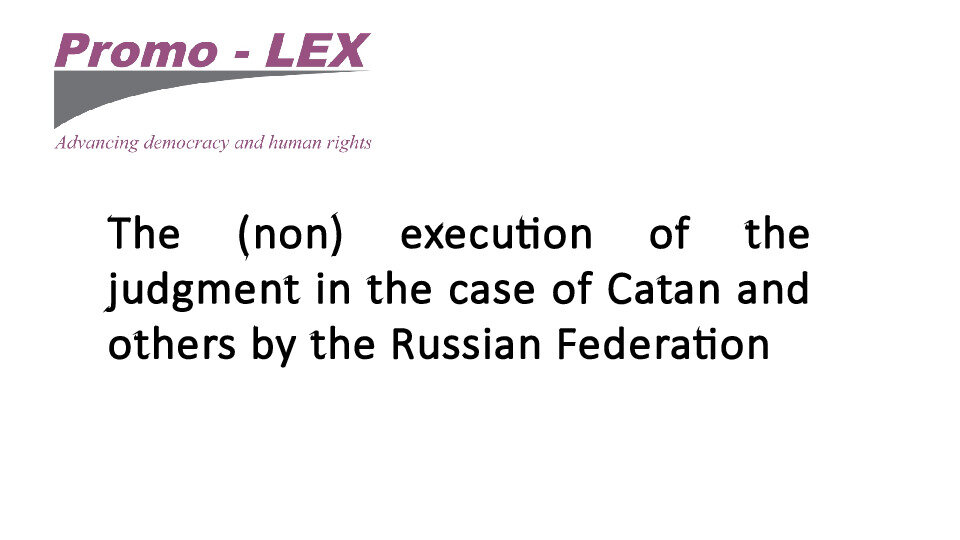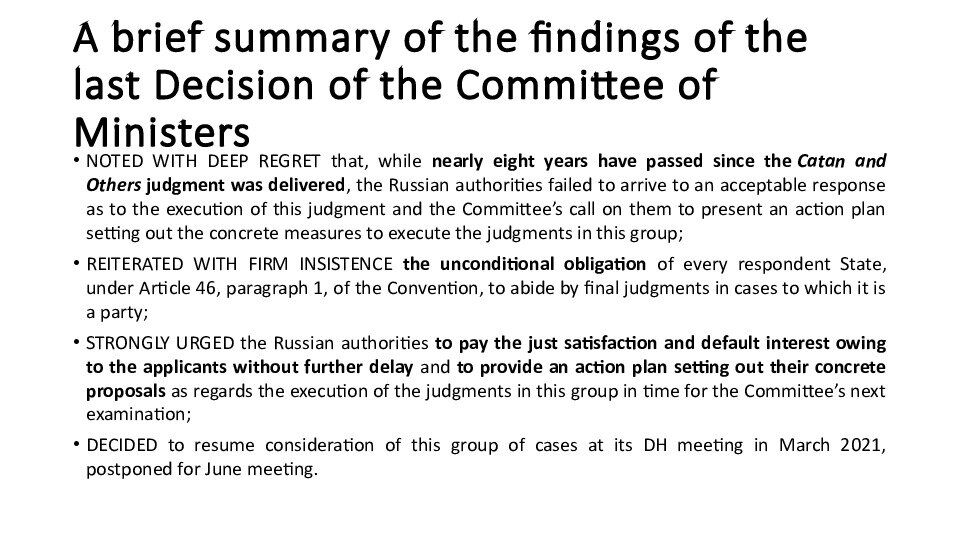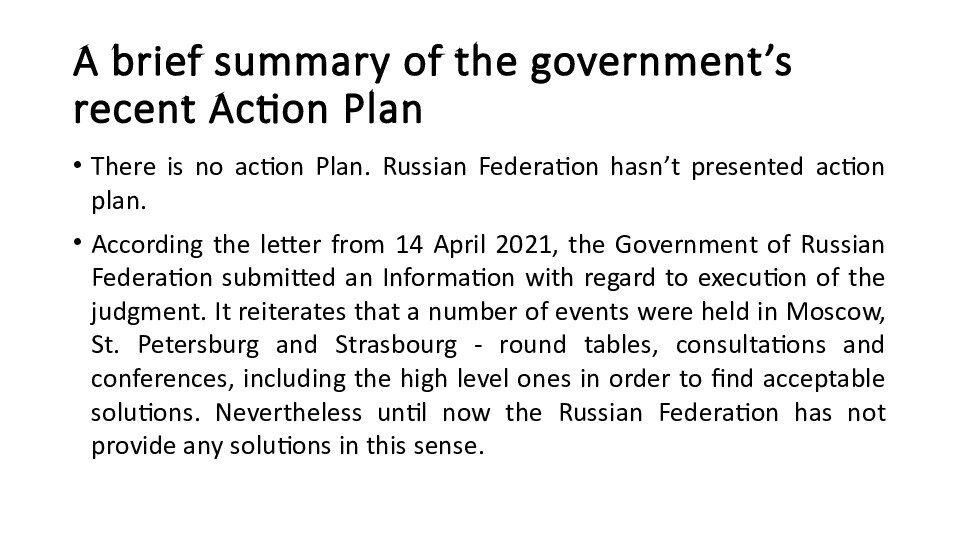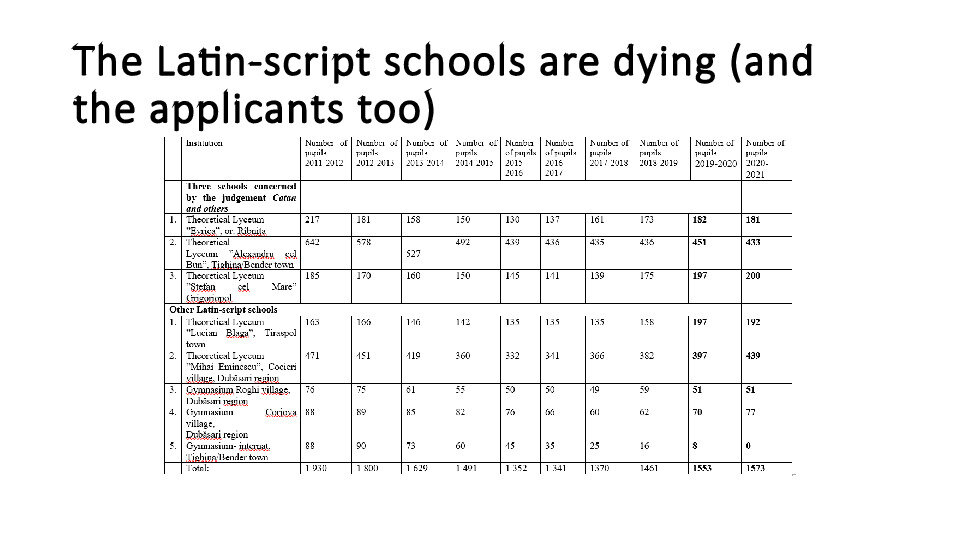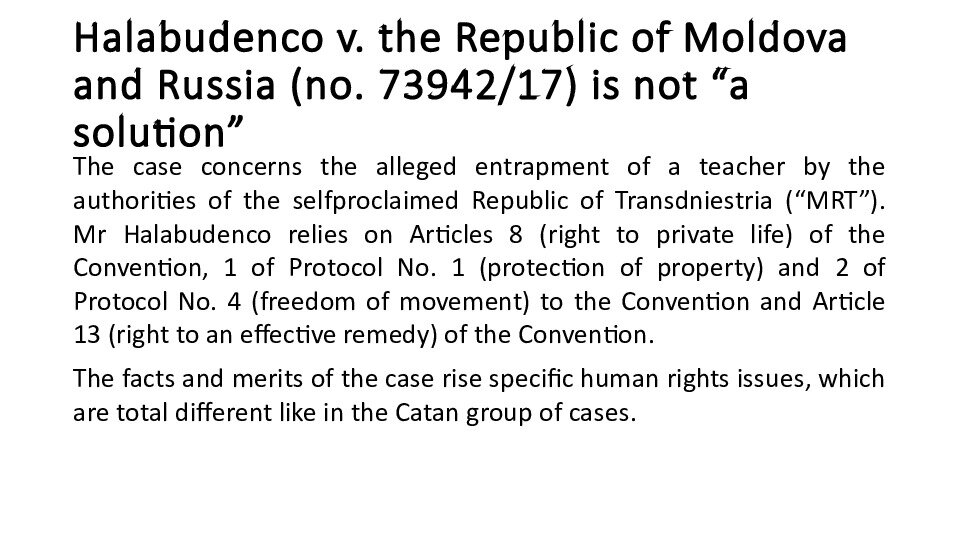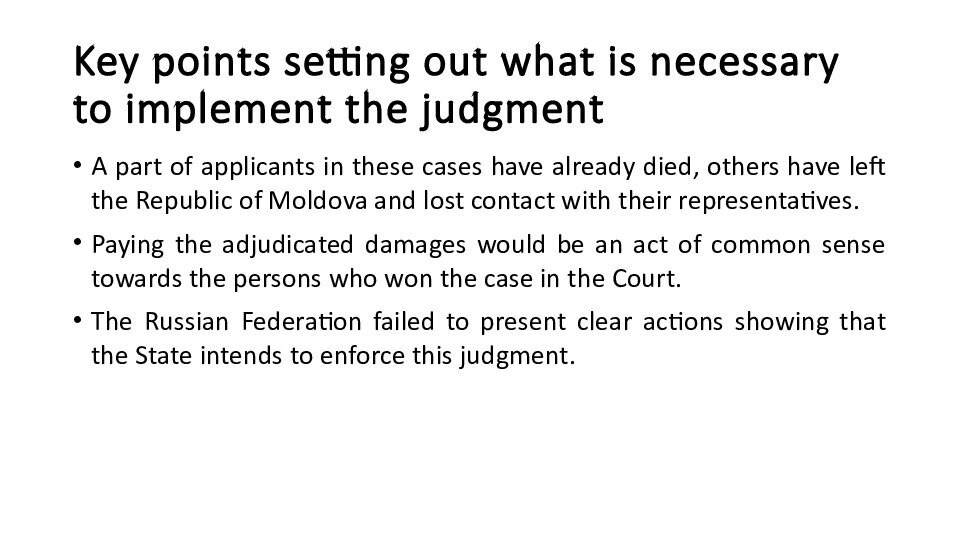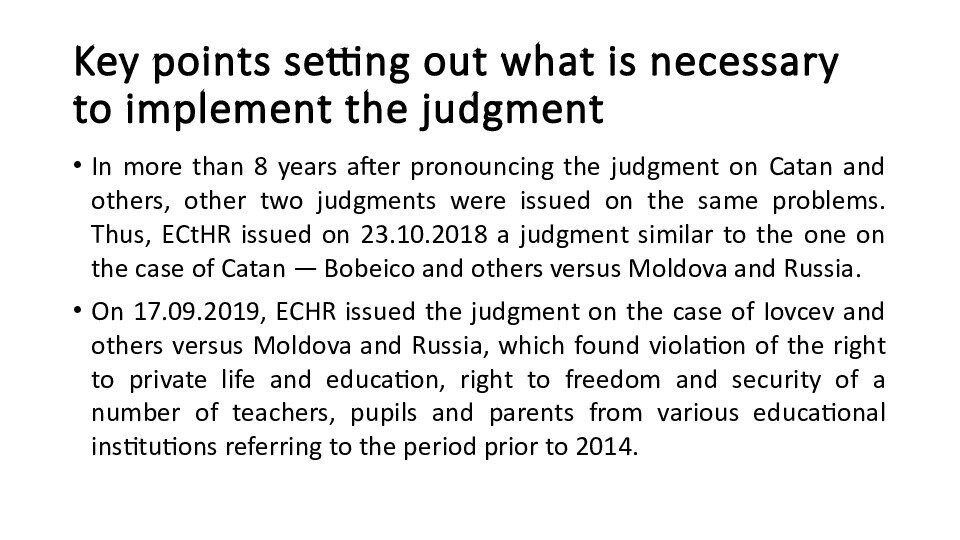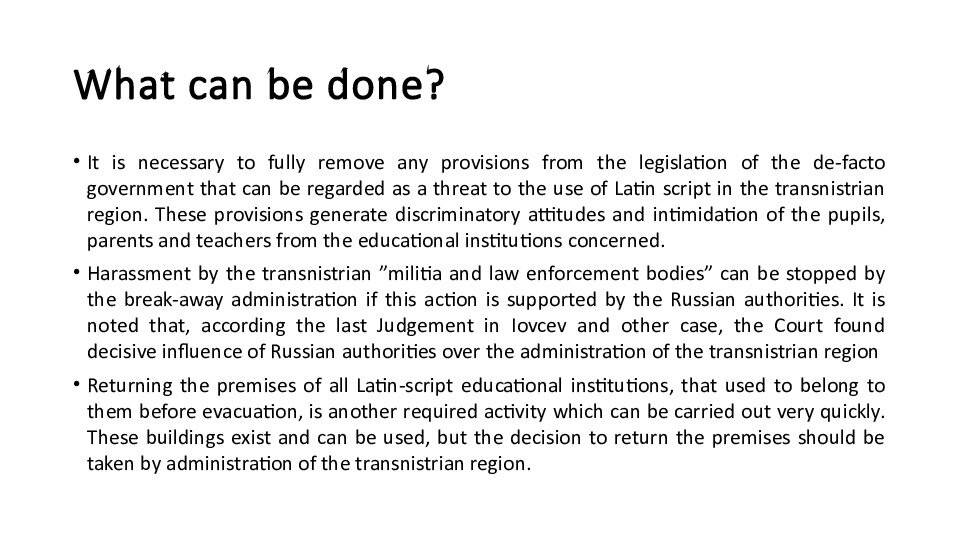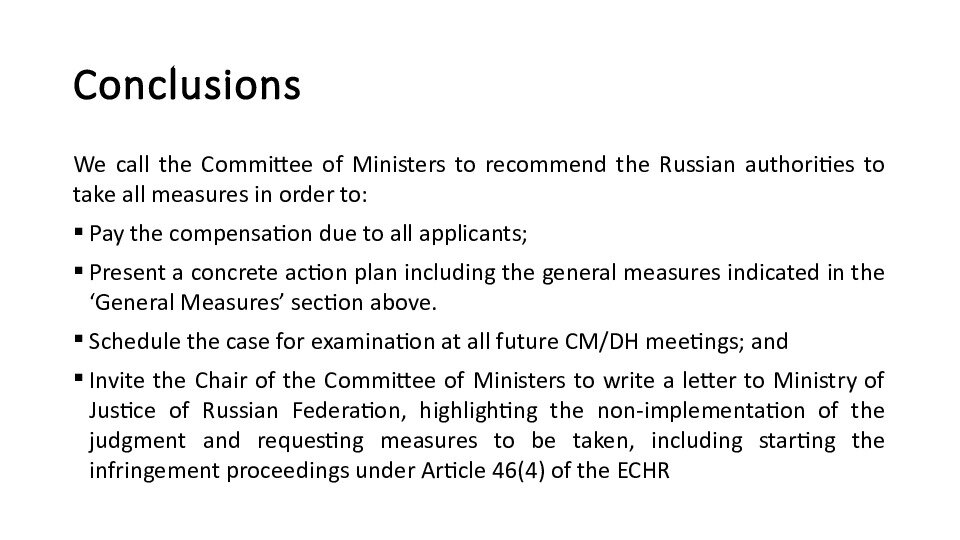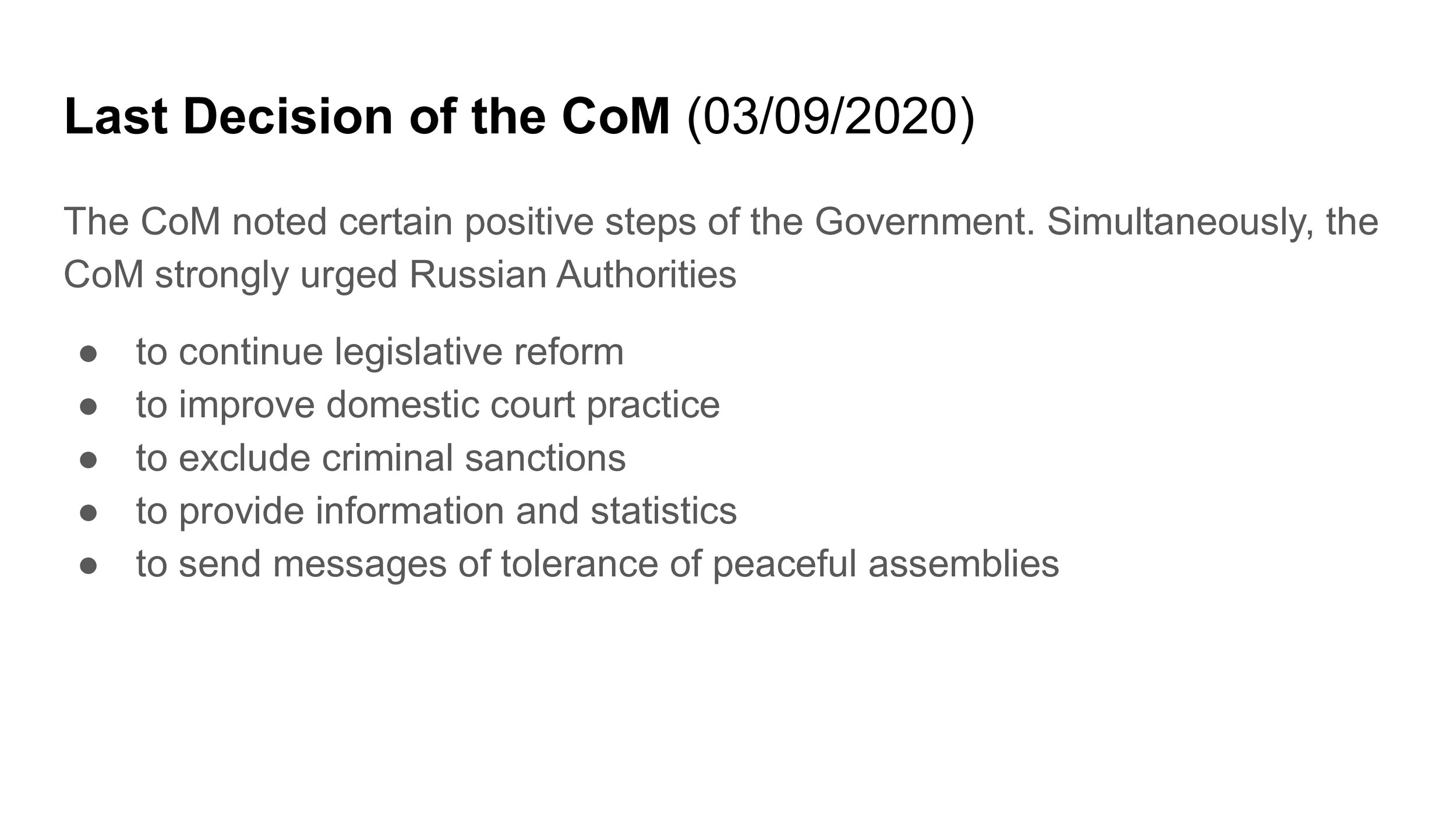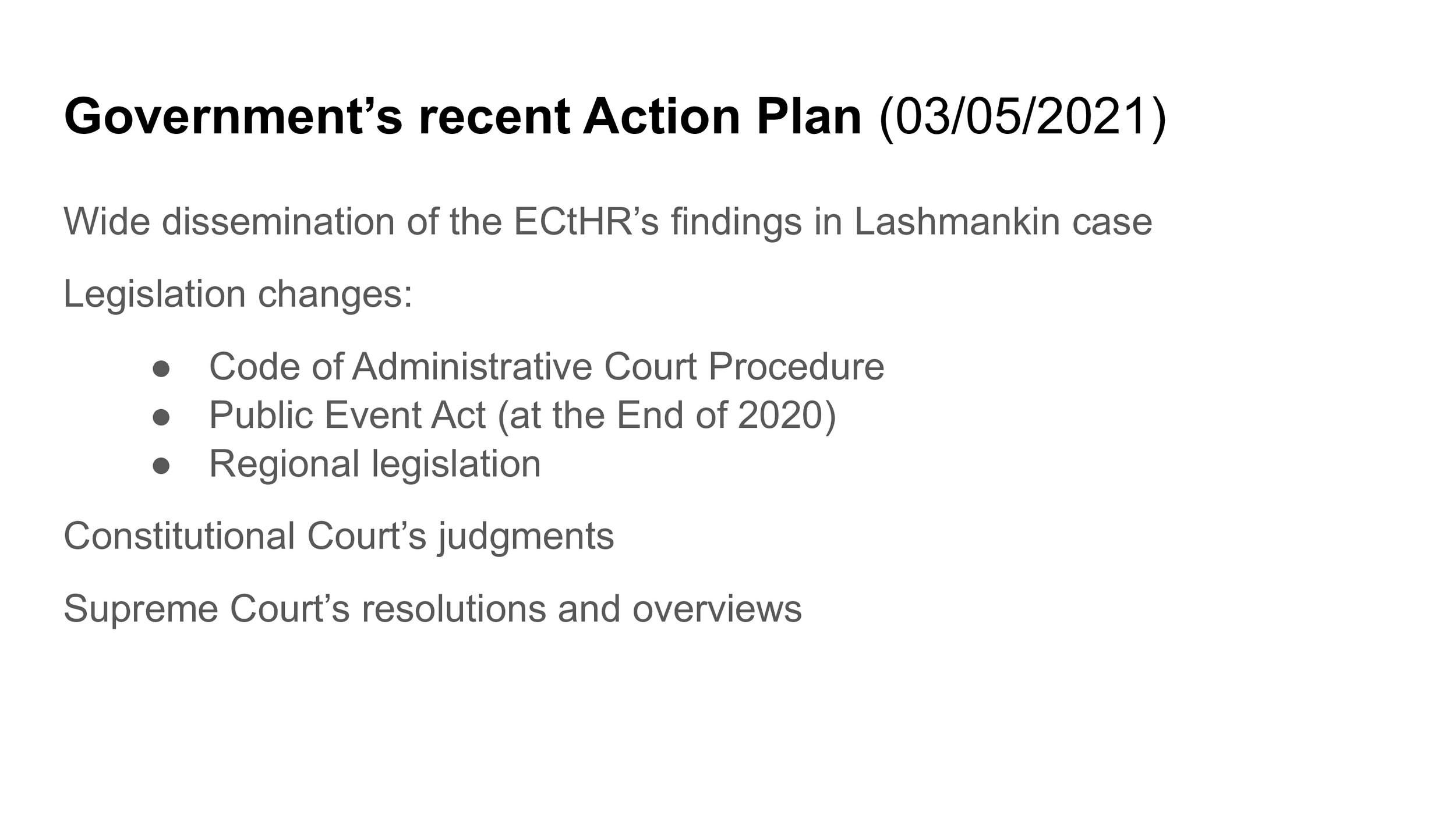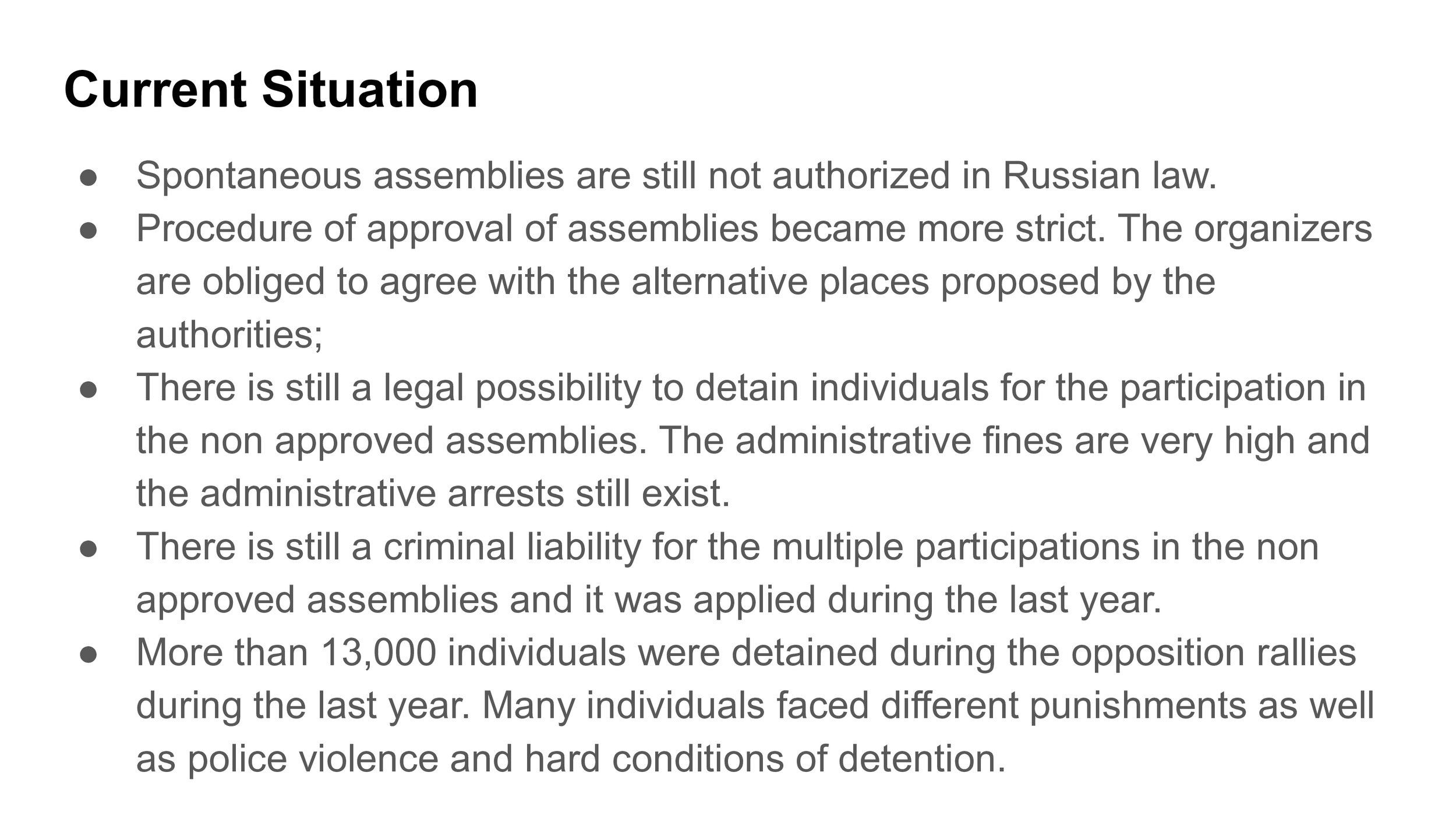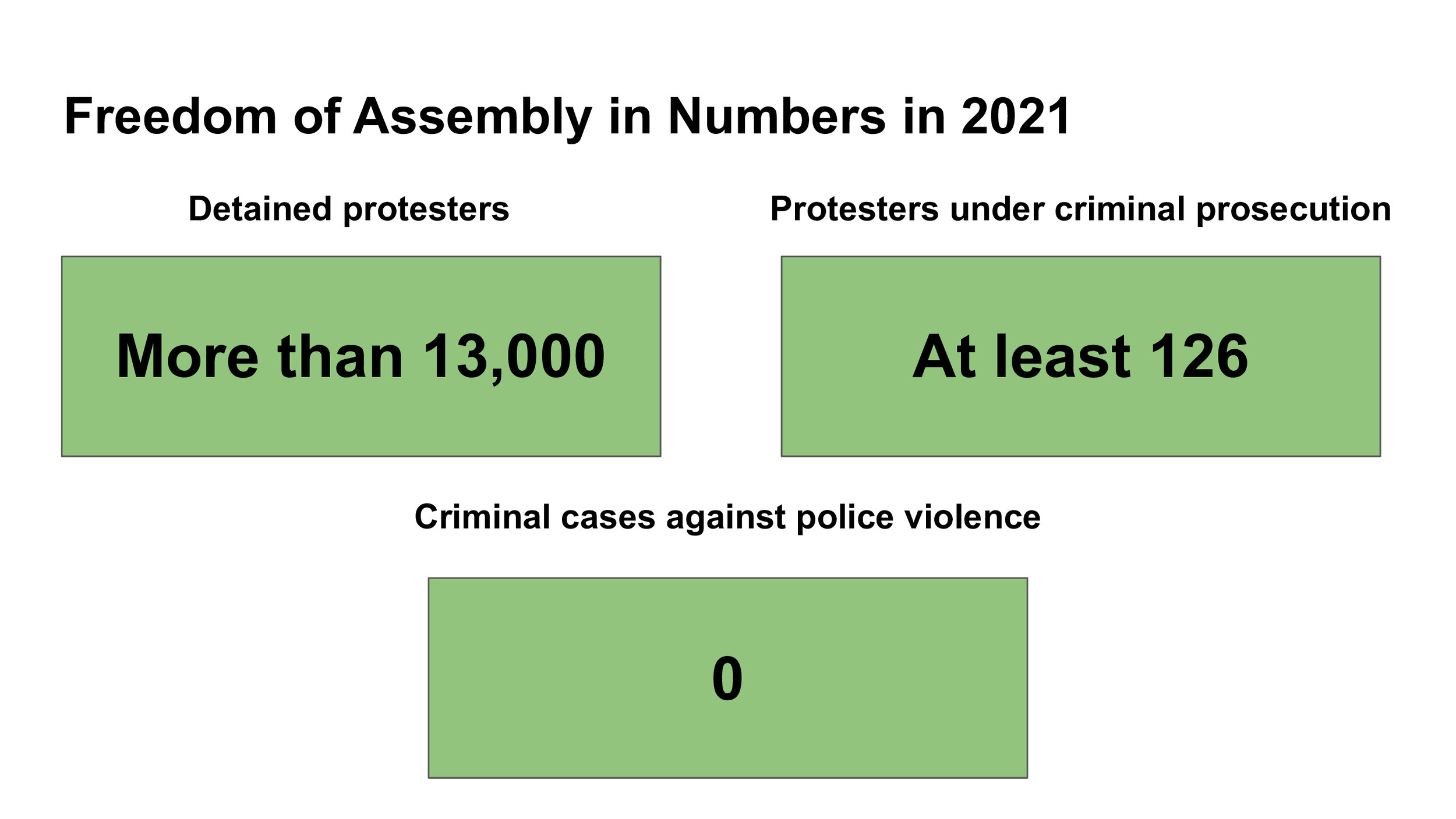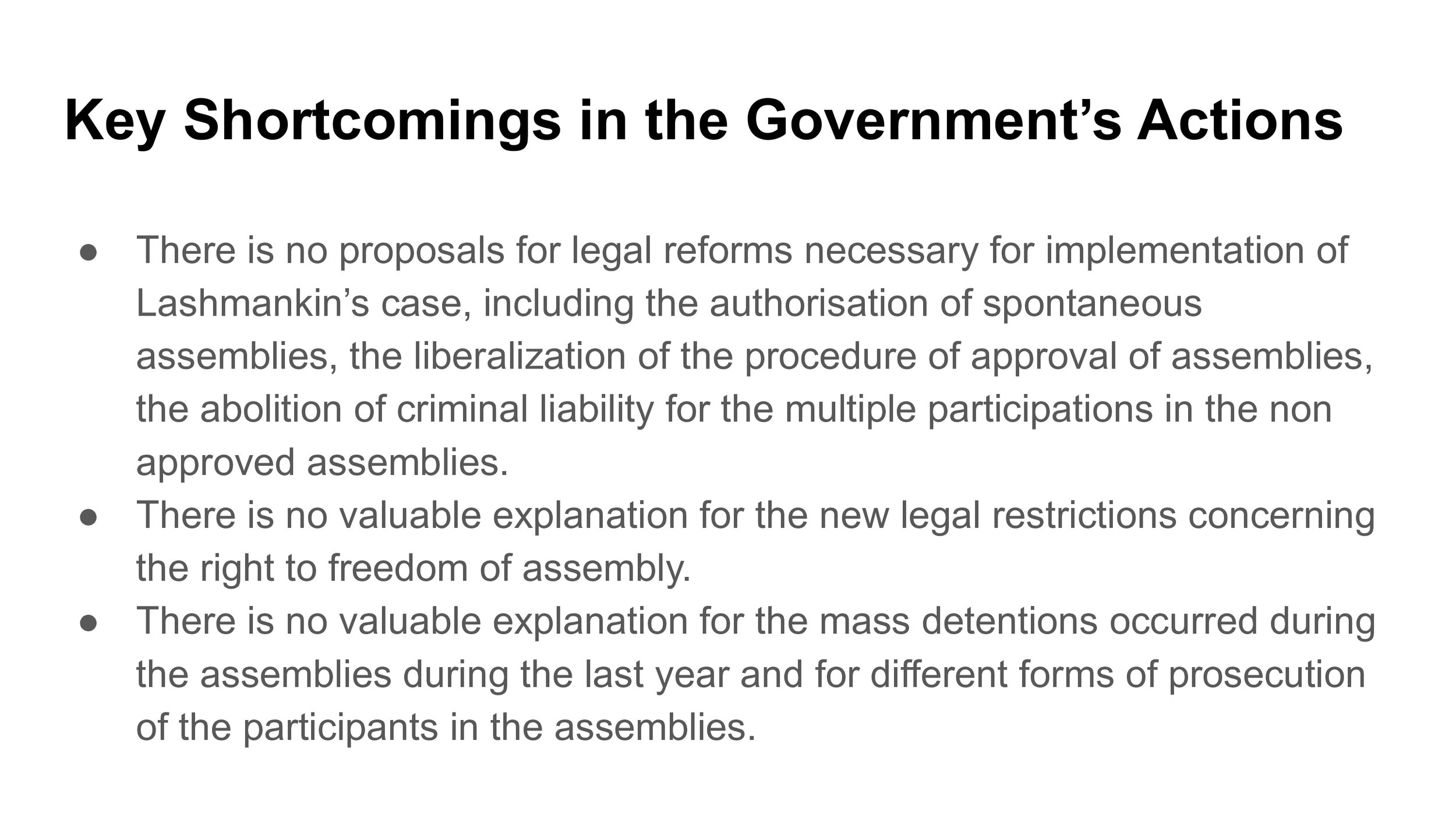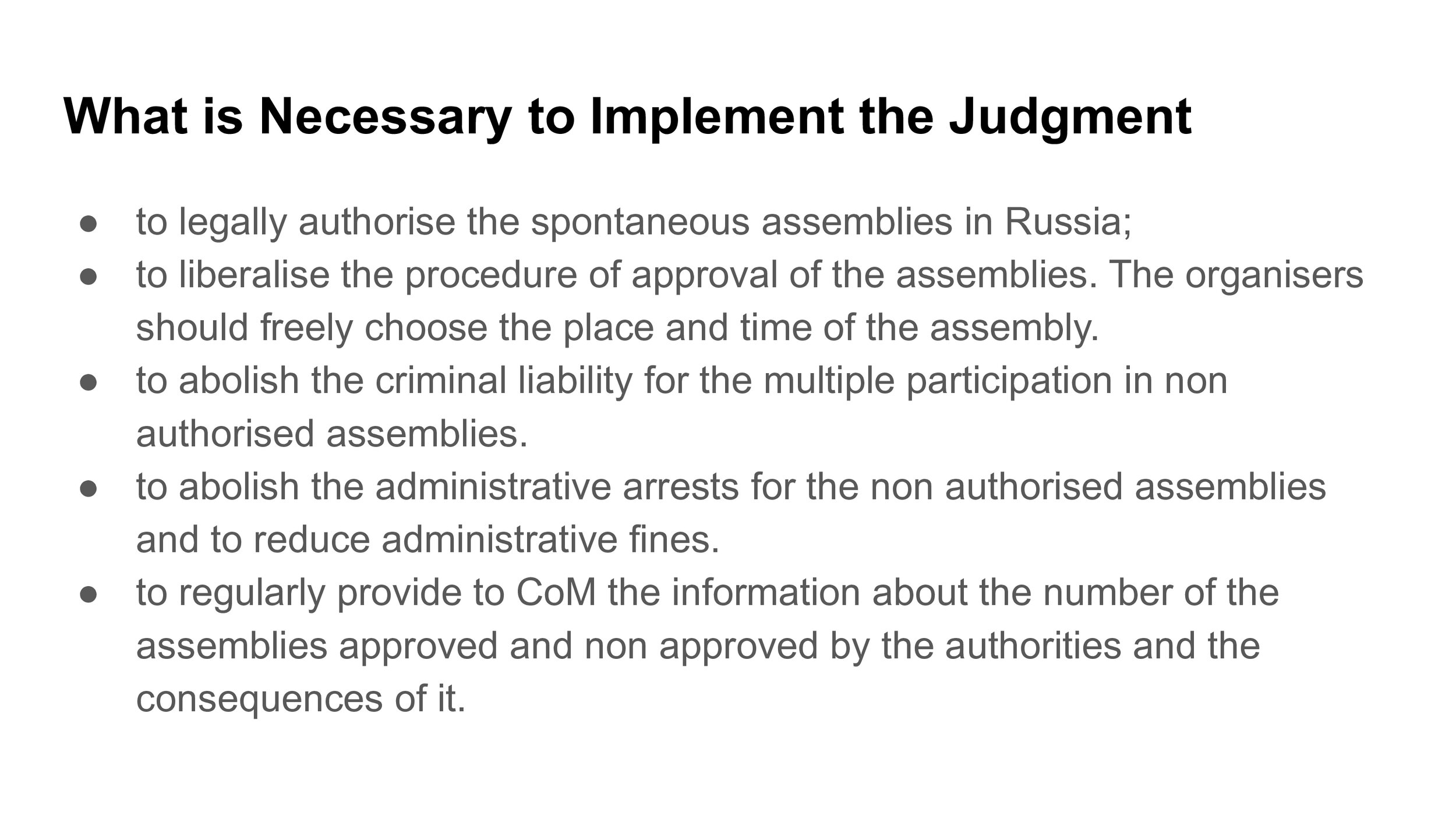EIN Civil Society Briefings on Russian cases: The Right to Education & Freedom of Peaceful Assembly
/EIN held its latest civil society briefing on 25 May 2021 ahead of the Committee of Minister’s Human Rights Meeting on 7-9 June 2021. Due to Covid-19, the event was online.
The first briefing focused on the following cases:
1. The Catan v Russian Federation case, concerning violations of the right to education of children and parents using Latin-script schools in the Transnistrian, This presentation was made by Vadim Vieru, from Promo-LEX.
2. The Lashmankin and others v Russian Federation case, concerning different violations mainly relating to the right to freedom of peaceful assembly, was presented by Tatiana Chernikova, Memorial Human Rights Centre, and Denis Shedov, OVD-Info.
The Catan v Russian Federation case
Overview of the Catan Case
This case concerns the violation of the right to education of children and parents using Latin-script schools in the Transniestrian region of the Republic of Moldova. The European Court of Human Rights found a violation of Article 2 of Protocol No. 1 to the European Convention on Human Rights in respect of the Russian Federation.
Overview of the Catan Briefing by Promo-Lex
Promo-Lex reminded the participants of the findings from the last CM Decision:
Russian authorities have failed to present an action plan setting out concrete measures to execute the judgments in this group. They have not paid the just satisfaction and default interest owed to the applicants.
Key points on relevant developments:
Some of the applicants in these cases have died, while others have left the Republic of Moldova and lost contact with their representatives.
Eight years after the judgment on Catan and others, two new judgments have been rendered on similar human rights issues: Bobeico and others v. The Republic of Moldova and Russia and Iovcev and others v. The Republic of Moldova and Russia.
What can be done?
Remove any provisions from the legislation that can be regarded as a threat to the use of Latin script in the Transnistrian region.
Stop harassment by the Transnistrian “militia and law enforcement bodies” of the break-away administration.
Return the premises of all Latin-script educational institutions.
Promo-Lex Recommendations to the CM
Request that the Russian authorities pay the compensation due to all applicants;
Request the authorities to present a concrete action plan including the general measures indicated above;
Schedule the case for examination at all future CM/DH meetings; and
Invite the Chair of the Committee of Ministers to write a letter to the Ministry of Justice of the Russian Federation, highlighting the non-implementation of the judgment and requesting measures to be taken, initiating the infringement proceedings under Article 46(4) of the ECHR.
Please see the slides for the full Briefing.
Relevant Documents
CM Interim Resolution
CM Interim Resolution (CM/ResDH(2020)183)
CM Interim Resolution (CM/ResDH(2015)157)
CM Interim Resolution (CM/ResDH(2015)46)
CM Interim Resolution (CM/ResDH(2014)184)
The Lashmankin and others v Russian Federation case
Overview of the Lashmankin and Others case
This group of cases mainly concerns the right to freedom assembly in different Russian cities in 2006-2017.
Overview of Lashmankin and Others by Memorial Human Rights Centre & OVD-Info
Memorial Human Rights Centre & OVD-Info reminded the participants of the findings from the last CM Decision, which strongly urged Russian authorities to:
Continue legislative reform
Improve domestic court practice
Exclude criminal sanctions
Provide information and statistics
Send messages of tolerance of peaceful assemblies.
Memorial Human Rights Centre & OVD-Info updated the participants on the current situation in Russia on freedom of assembly:
Spontaneous assemblies are still not authorized in Russian law.
The procedure of approval of assemblies became more strict. The organizers are obliged to agree with the alternative places proposed by the authorities.
There is still a legal possibility to detain individuals for participating in non-approved assemblies. The administrative fines are very high, and administrative arrests still exist.
There is still a criminal liability for participation in the non-approved assemblies, and it was applied during the past year.
Over 13,000 individuals were detained during the opposition rallies during the last year. Many individuals faced different punishments as well as police violence and hard conditions of detention.
What is Necessary to Implement the Judgment
To legally authorize spontaneous assemblies in Russia;
To liberalize the procedure of approval of assemblies. Organizers should be able to freely choose the place and time of assemblies.
To abolish the criminal liability for participation in non-authorized assemblies.
To abolish administrative arrests for non-authorized assemblies and to reduce administrative fines.
To regularly provide the CM with information about the number of assemblies approved and not approved by the authorities and the consequences of this.
Memorial Human Rights Centre & OVD-Info Recommendations to the CM:
Public Verdict Foundation, HRC Memorial, Committee against Torture, and OVD-Info propose to the Committee of Ministers the following measures:
To adopt an interim resolution recognizing that the case of Lashmankin has not been implemented by Russian authorities.
To remind the authorities about the necessity of adopting the recommendations made by the Committee of Ministers in its previous decision.
To propose to the authorities the adoption of the list of recommendations made by “Memorial” and OVD-Info in their previous submission to the Committee of Ministers on 20 April 2020.
To remind the authorities that the most important reforms deriving from the case of Lashmankin have still not been adopted by the authorities and to urge them to adopt these reforms.
To condemn the new restrictive laws adopted by Russian authorities during the last year and to state that the authorities must withdraw these laws.
To welcome some positive drafts laws proposed by Russian deputies and to encourage the authorities to adopt these drafts laws.
To indicate that the practice of the Constitutional Court and regional laws must be more consistent and fully follow the findings of the ECHR in the Lashmankin case.
To indicate that the restrictions due to the COVID-19 pandemic must not be applied in a discriminatory and non-proportional way.
To condemn the mass arrests and prosecutions of participants in peaceful assemblies, perpetrated by the authorities during the last year.
To propose that authorities create a working group at a federal level consisting of experts and civil society to discuss the reforms necessary for the implementation of the Lashmankin case.
To decide to consider again the Lashmankin case during the next session of the Committee of Ministers together with the cases dealing with the related issues including “Tomov and others v. Russia”, “Fedotov v. Russia”, “Mikheyev v. Russia”, “Atyukov v. Russia”, “Zakharov and Varzhabetyan v. Russia”.
Please see the slides for the full Briefing.
Relevant Documents


